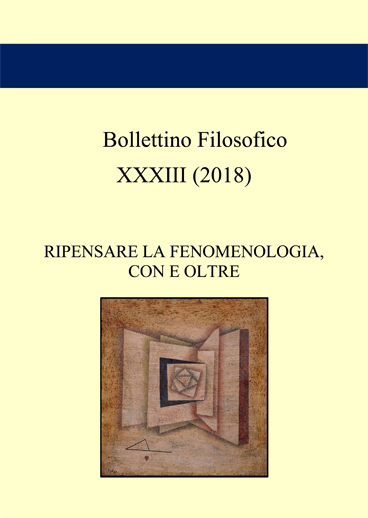Plato is not Platonism: Musings on the Derivative De-eroticized Nature of the Modern Subject
Abstract
One of the enduring problems of phenomenology concerns the dispute over the nature of the modern subject (subjectivity) that is responsible for its own agnostic and atheistic views of the world. In an effort to understand the “obscurity” around the nature of the modern subject, Heidegger turns to Plato (1936-37) bearing in mind Nietzsche’s distinction between Plato and Modern Platonism. From the perspective of Plato’s eroticized conception of the logos, based as it is in the soul’s form of sophrosyne, Heidegger draws the following conclusion: the Kantian claim of Modern Platonism that the nonsensuous being of Plato’s Ideas and of the gods cannot in principle be known is based on a de-eroticized, derivative, conception of the logos. But Heidegger fails to see Plato’s own astonishing account of how this new logos of the “non-lover” is based in a derivative form of sophrosyne.Downloads
Bollettino Filosofico pubblica in internet, ad accesso aperto, con licenza:
|
|
CCPL Creative Commons Attribution |
L'autore conserva il copyright sul suo contributo, consentendo tuttavia a chiunque "di riprodurre, distribuire, comunicare al pubblico, esporre in pubblico, rappresentare, eseguire e recitare l'opera", purché siano correttamente citati l'autore e il titolo della rivista. L’autore, al momento della proposta di pubblicazione, è inoltre tenuto a dichiarare che il contenuto e l’organizzazione dell’opera è originale e non compromette in alcun modo i diritti di terzi, né gli obblighi connessi alla salvaguardia di diritti morali ed economici di altri autori o di altri aventi diritto, sia per testi, immagini, foto, tabelle, sia per altre parti di cui il contributo può essere composto. L’autore dichiara altresì di essere a conoscenza delle sanzioni previste dal codice penale e dalle leggi speciali per l’ipotesi di falsità in atti ed uso di atti falsi, e che pertanto Bollettino Filosofico è esente da qualsiasi responsabilità di qualsivoglia natura, civile, amministrativa o penale, e sarà dall'autore tenuta indenne da qualsiasi richiesta o rivendicazione da parte di terzi.
